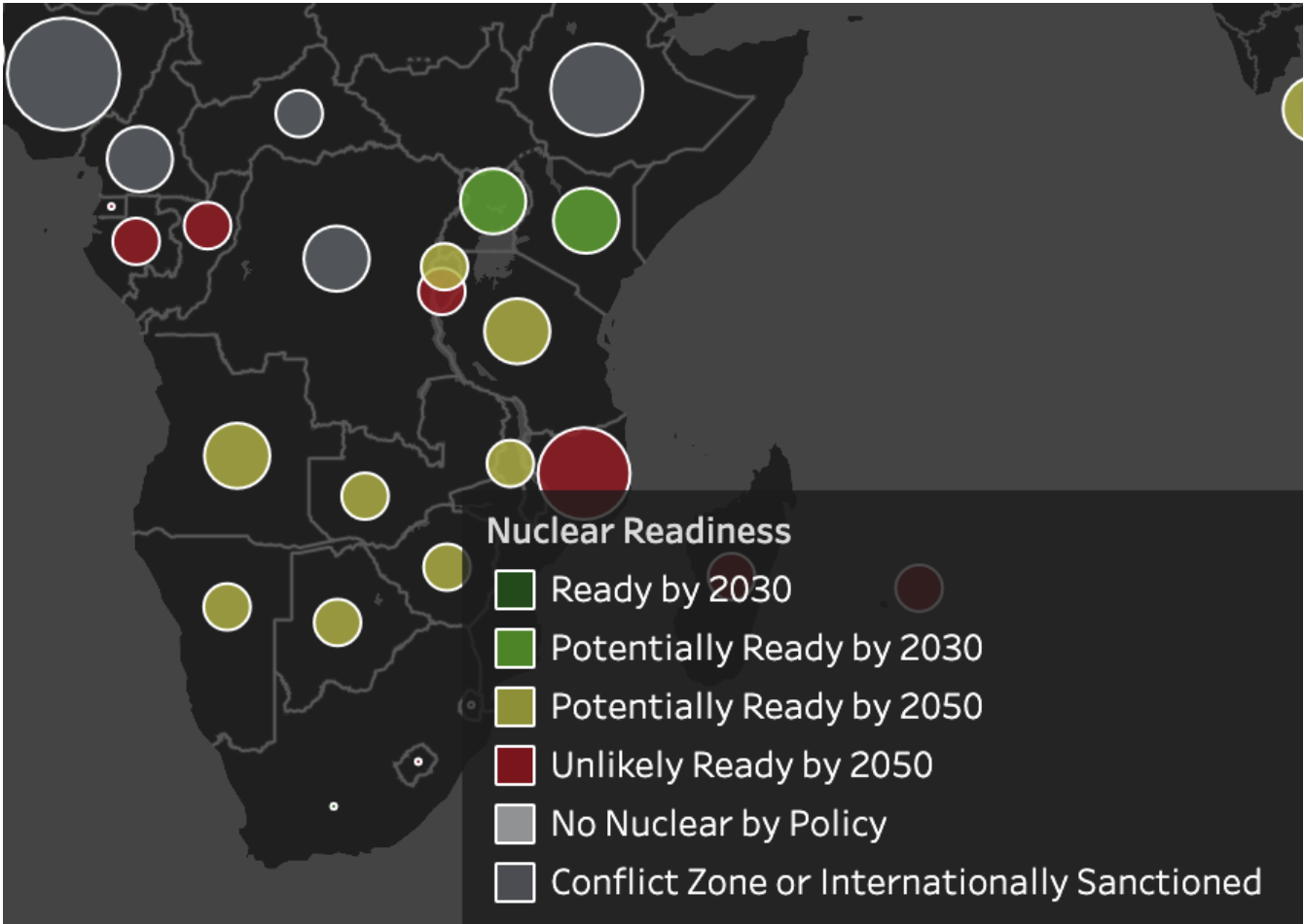Solar, hydro, wind, and gas are the most common options for African countries to meet their energy needs, yet several are increasingly interested in adding advanced nuclear power to their mix.
South Africa already operates a nuclear power plant, and Ghana has recently signed nuclear cooperation agreements with the United States and Japan. Based on our 2022 Map of the Global Market for Advanced Nuclear, two other countries also made significant progress on a civil nuclear energy program: Uganda and Rwanda.
We upgraded Uganda to “Potentially Ready by 2030” (Light Green) for the first time. Uganda made substantial progress on the International Atomic Energy Agency (IAEA) milestones approach and took multiple concrete steps toward its first project, including signing an agreement with Russia, acquiring land for the power plant, and starting to actively solicit investors in the $9 billion project. While we rate them as likely to be “ready” by 2030, an actual project is probably farther off.
Rwanda, rated “Potentially Ready by 2050” (Yellow) could be upgraded in the near future. Rwanda signed a new Country Program Framework with the IAEA and established an Atomic Energy Board with the explicit goal of shepherding the country’s nuclear ambitions. Like Uganda, Rwanda has partnered with Russia to train nuclear scientists and construct a training center and research reactor in Kigali.


